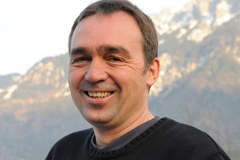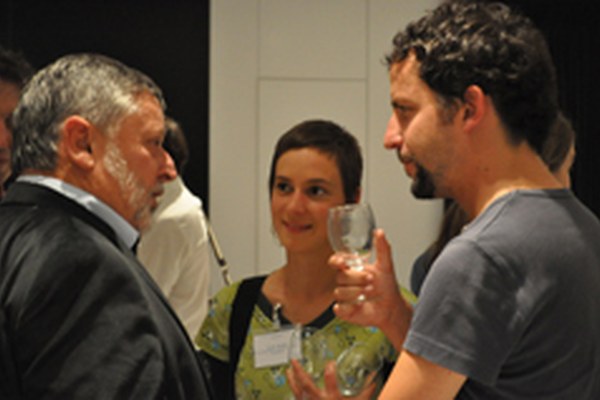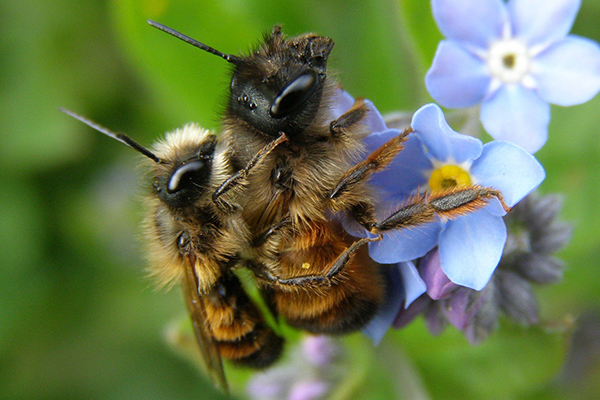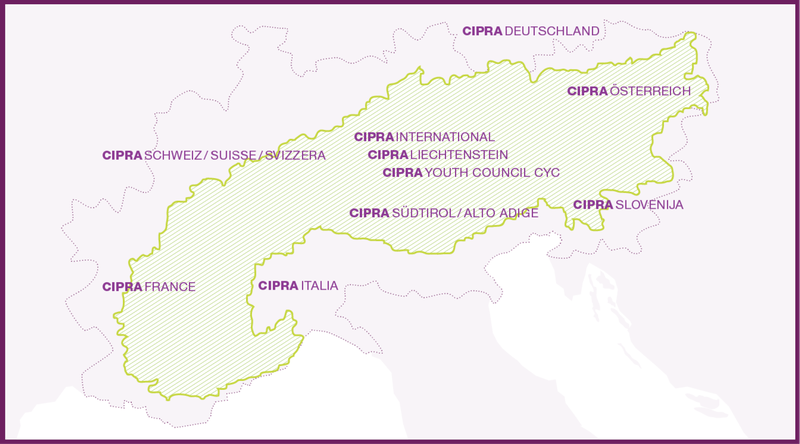Laura Haberfellner, CIPRA International Lab
Innovation to counter emigration
Emigration and the brain drain in the Alpine region: a new EU project involving CIPRA aims to counteract this trend. It is testing innovative governance models to strengthen mountain regions and create a win-win situation for regions of origin, destinations and young emigrants.
Who is CIPRA?
Find out more!
More articles

Time to shelve the growth model
Yearly Symposium 2009 Gamprin/FL “Growth come hell or high water?”. Andreas Götz, Director OF CIPRA International, on declining growth and its repercussions for the Alps.

Barbara Wülser | CIPRA International | Schaan, LI
CIPRA prepares a seed bed for new ideas in the Alpine region
CIPRA addressed a broad range of issues at its Yearly Symposium entitled “Growth come hell or high water? The Alps in search of happiness” in Gamprin/FL in September. A look at the global cycles and modes of action provided the framework for the topic. CIPRA also looked at the close ties with the Alps, where those global cycles have an impact, and promoted dialogue at various levels. The Symposium was very favourably received by more than 200 participants from all the Alpine countries.

alpMedia | Schaan, LI
Leisure: car-free mobility
Leisure activities that do not involve the use of cars are now "in", as the increasing number of information packs clearly shows. The Alpine Club South Tyrol (AVS) for instance recently published five new brochures, each featuring 15 to 20 hiking routes whose starting and finishing points can all be reached by public transport. In the series Hiking Without Cars the Alpine Club has compiled a total of some 300 hiking tips for the whole of South Tyrol. As the AVS remarks in a press release, "It should be a priority for tourist regions to adopt measures that promote the use of public transport for travel both to and from destinations as well as for activities at the holiday destination itself".

alpMedia | Schaan, LI
The "brain drain": an opportunity for the Alps?
Highly qualified people are also leaving alpine regions to move to other regions or countries. But according to a study by the Arbeitsgemeinschaft Alpenländer (ARGE ALPE) Working Group the Alps can put this brain drain to a positive use. Indeed these brilliant minds are also multipliers and image carriers for their homeland around the globe, a fact that should be capitalised on.
Events
|
Webinar - Successfully organising sustainable procurement with proCURE | online | |
|
FutureForum Alps 2025 | SAL - Saal am Lindaplatz, Landstrasse 19, 9494 Schaan, Liechtenstein |
Projects

CIPRA International
Cross-border mobility
[Project completed] Tens of thousands of commuters move across national borders every day in the Alpine region. Existing traffic routes, however, were mostly built with a purely national perspective and are not geared to cross-border commuter flows. The result is overloaded roads, noise and pollution for local residents.

CIPRA International Lab
PlurAlps
[Project completed] The Alpine area is experiencing the combined challenges of an ageing population and new migration models. At the same time, opportunities for social innovation and development arise from increasing cultural diversity and pluralism. Mountainous and peripheral Alpine municipalities and regions are specifically concerned and need technical support and new approaches to develop a welcoming culture, which should be credibly embraced and implemented by municipalities, SMEs and civil society.

CIPRA International
BeeAware!
[Project completed] The aim of the project BeeAware! is to inspire communities in the Alps for bee protection and thus to improve the livelihoods of honey and wild bees. Bees are depending on an intact biodiversity. The different bee species need different plants, nesting and drinking places in order to survive. Integral bee protection therefore means securing, improving and enlarging the habitat of these important pollinators.

